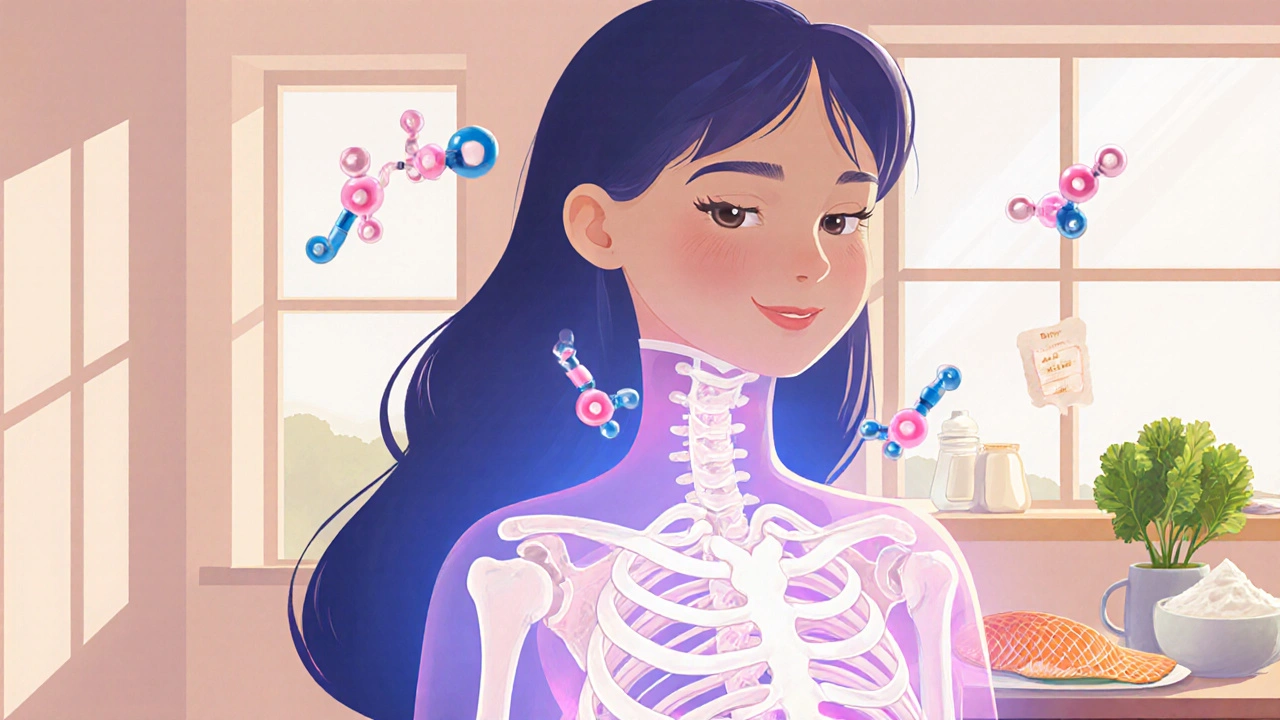Bone Density: What It Means and How to Keep Your Bones Strong
When we talk about bone density, the amount of mineral content packed into your bones, which determines their strength and resistance to fractures. Also known as bone mineral density, it’s not just something doctors check on a scan—it’s the quiet foundation of your mobility, independence, and quality of life as you get older. If your bones are thinning, you won’t always feel it until you fall and break something. That’s why understanding bone density isn’t optional—it’s essential.
Your bones aren’t just static structures. They’re alive, constantly breaking down and rebuilding. But as you age, especially after 50, that balance shifts. Women going through menopause lose bone faster because estrogen drops, and men aren’t immune either—testosterone declines over time. Without enough calcium, a mineral your body uses to build and repair bone tissue, your skeleton starts to weaken. And if you’re not getting enough vitamin D, the nutrient your body needs to absorb calcium from food, even a high-calcium diet won’t help. These two work together like a team: one brings the building blocks, the other delivers them to the right place.
Low bone density doesn’t mean you’re doomed. It’s a signal, not a sentence. Many people improve their bone strength simply by changing how they move, what they eat, and whether they get sunlight or supplements. Weight-bearing exercises like walking, lifting weights, or even dancing stress your bones just enough to tell them to get stronger. On the flip side, smoking, too much alcohol, and certain medications (like long-term steroids) can accelerate bone loss. You don’t need a fancy gym or expensive supplements—just consistency. And if you’ve had a fracture after a minor fall, that’s a red flag your bones need attention.
The posts here cover real-world issues tied to bone health—not just the science, but the practical side. You’ll find info on how medications affect your bones, what supplements actually help, how lifestyle choices play a role, and what to ask your doctor when you get your scan results. No fluff. No guesswork. Just clear, actionable details from people who’ve been there.
How Desogestrel-Ethinyl Estradiol Affects Bone Density in Women
Desogestrel-ethinyl estradiol may help maintain bone density in young women by providing estrogen, but it's not a substitute for proper nutrition and exercise. Learn how it affects bones and what really matters for long-term skeletal health.
View more
